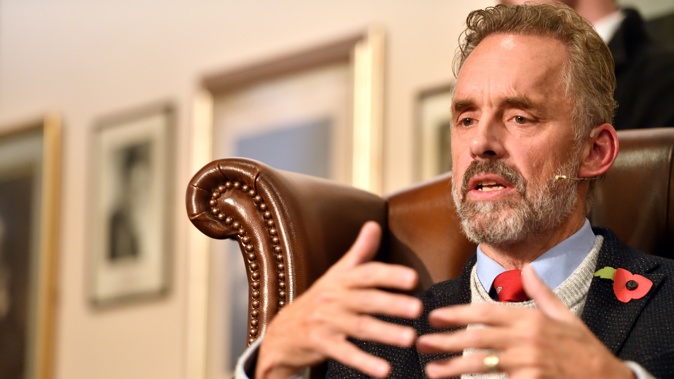
Clinical psychologist Jordan Peterson said his rise to fame and controversial views nearly cost him his jobs.
Jordan Peterson told Newstalk ZB's Mike Hosking the notoriety surrounding him was stressful and endangered his job at one point.
"My job was in danger at the university and my clinical licensing as a clinical psychologist and had things gone badly, which they didn't, then I would have been in trouble."
"I was hard to take out because I had three separate sources of income, so even if I would have lost my two main jobs, I wouldn't have been completely financially strapped but it was very stressful and very controversial."
However, Peterson said he is less vulnerable now.
"Pretty much every epithet under the sun has been levelled at me and it hasn't worked, and the reason it hasn't worked is because the epithets are untrue."
The Canadian professor gained a cult-like following overnight after publishing his self-help style book, '12 Rules of Life: The Antidote To Chaos'.
Peterson's controversial views on gender politics and his opposition to the recent Canadian law making it illegal not to use preferred pronouns for transgender people helped propel him into the limelight, as well as receiving strong backlash.
He said he never set out to be controversial, but was was aware that his views would stir up strong emotions.
"I set out originally...to solve a very complicated problem, which was whether or not there was something that was vital and worth preserving at the basis of Western society, that distinguished it from totalitarian states or communist societies."
"I knew that I was dealing with extremely deep and controversial material there, and I could tell that because of the effect that my teaching had on my students...and that became increasingly influential publicly," he said.
"So I had some sense that there was tremendous controversy sitting at the bottom of this but, of course, I couldn't imagine the magnitude."
The controversy surrounding the psychologist doesn't bother him because he said the outrage is based on misinformation.
"I would say this particularly characterises radical left-wing journalist [because] is all they do is read each others' comments on what I've said and they don't ever go and listen."
"But for most people...the controversy draws them to my website and what they discover that what I'm saying and have been saying for 30 years, bears absolutely no resemblance to what I'm being accused of."
When asked whether he was a radical thinker, he said to a degree he is a "very radical thinker".
"Being a conservative thinker, in some sense, in today's society is radical then I am a very radical thinker."
"I think that there is something unbelievably correct about the Judeo-Christian tradition. I think the fundamental stories on which our cultures are based, well first of all that they are based on stories, and second, that the wisdom that is contained in those stories, is as true as anything that human beings have ever discovered, not only true but vital and that makes me very radical among academic types."
When asked about his views on the gender pay gap, the clinical psychologist said his views are based on a number of factors.
"We know that men work longer hours and that if you work 10 per cent longer hours, you make 40 per cent more money. Men work outside and there is a pay increment for that, and they work more dangerous jobs, and they work in the STEM fields that tend to pay more...and they are much less likely to work part-time."
"These are all small factors but when you add them up they more than account for the pay gap difference."
He said it isn't a gender pay gap difference, it's a pay gap difference between mothers and non-mothers.
"We don't really know how to deal with that because it turns out that rasining children is very difficult and expensive and it isn't a problem that we have an easy solution for."
However, he said it is important that companies don't actively discriminate against women.
"Companies that have been actively discriminating against women stop doing that and it expands their talent pool. But the idea that there is something intrinsically, economically valuable about having women rather than men doing a particular task, I don't think there is any evidence for that whatsoever."
"It's talent that you want and this is basically the claim of people who aren't prejudiced...fundamentally talent is independent of features."
Jordan Peterson said the most immediately practical tip from his book is rule eight.
"Which is, to tell the truth, or at least not to lie. It's tangible because although it's not that easy, to tell the truth, because we are all ignorant and what do we know of the truth, it is possible to stop saying things that you know not to be true."
When asked whether he felt he was doing that, Peterson said, "the evidence from the public reaction is that I am winning that battle".
"I have talked to literally thousands of people who have told me that their lives have been set on a much straighter course."
He said the book is a mixture of useful advice and extremely abstract thinking.
Peterson said YouTube and technology has changed the way people interact with each other.
"YouTube and podcasts, in particular, have made the spoken word as powerful and as widespread as the written word and that's a revolution."
Take your Radio, Podcasts and Music with you








